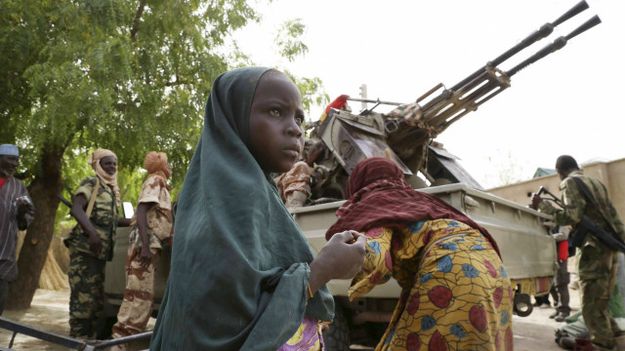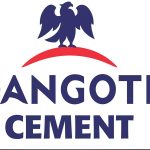General
Sharp Hike in Food Prices Triggers Fear of Hunger in Nigeria
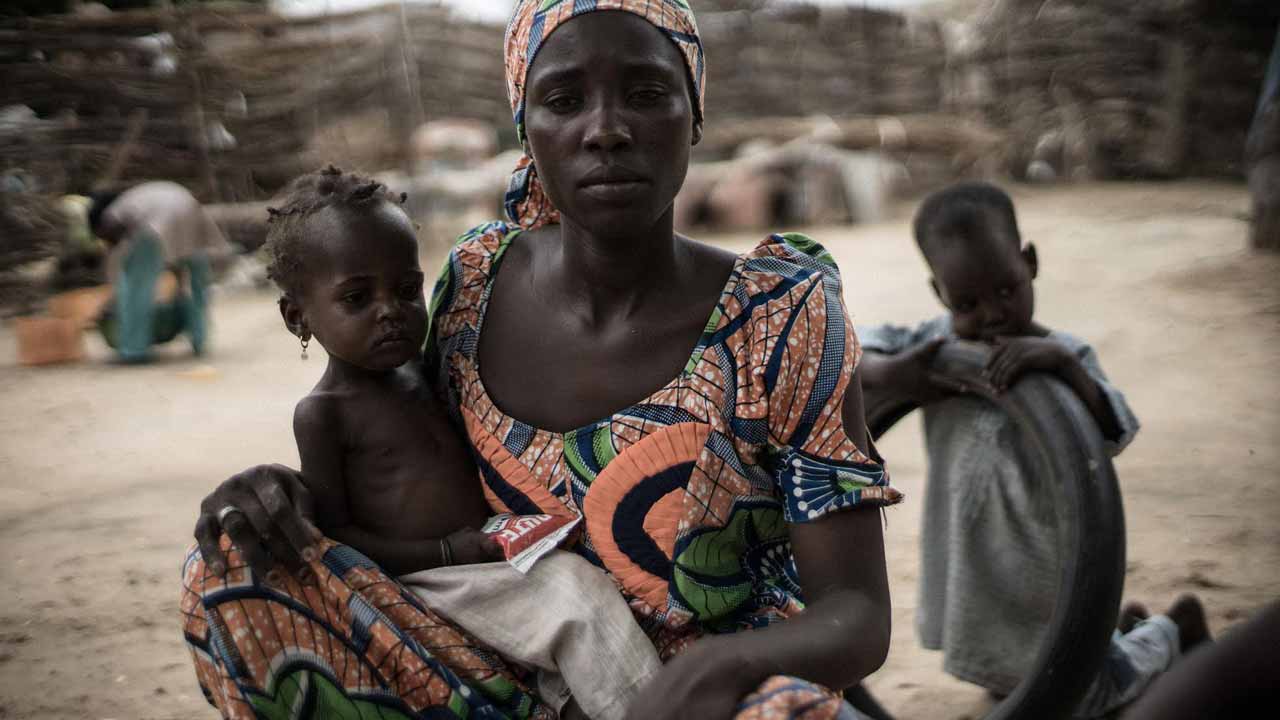
By Modupe Gbadeyanka
There is a huge fear of hunger in Nigeria as a result of the sharp increase in the prices of food items, the International Committee of the Red Cross (ICRC) has said.
The group noted that at the different nutrition centres it supports in the country, it has witnessed an increase in malnutrition rates among children.
In a statement issued over the weekend, it said the number of children treated by the outpatient nutrition program grew by 20 per cent, while the number of severe malnutrition cases rose by 10 per cent, compared to the same period last year.
It was stressed that the rise in the number of patients was registered despite the ICRC putting on hold its community outreach program due to COVID-19 pandemic.
The outreach program, implemented in collaboration with the Nigerian Red Cross Society (NRCS), is its most efficient tool to identify malnourished children.
“What we are seeing now is just the tip of an iceberg, and we are very concerned by the trend, especially in Maiduguri,” an ICRC nutritionist, Thomas Ndambu, said, adding that, “I am certain that when Nigerian Red Cross volunteers resume their community outreach, the numbers will surge.”
The economic impact of the COVID-19 pandemic put additional strain on the vulnerable communities in the North-East of Nigeria, where the decade-long armed conflict is severely hampering agricultural production and self-sufficiency of local farmers.
“Everywhere we work the food prices have gone up, in some places they doubled. It means that millions of people in the North-East of Nigeria do not have enough to eat,” said Ruth Mwakiuna Muriungi, economic security programs coordinator for the ICRC.
Almost two million people in the North-East are currently displaced and do not have access to their agricultural land and production tools. In many areas of the Lake Chad region, insecurity and movement restrictions have limited farmers’ ability to plant crops.
Kano, Nigeria’s major seeds producer, was among the areas hit the hardest by the pandemic during the planting season, which affected seed processing and transportation.
As a result, many farmers could not obtain seeds or received them too late. The ICRC, one of the major contributors to the agricultural sector in the North-East, managed to obtain less than 60% of the seeds it was originally planning to distribute to vulnerable communities.
With Nigeria depending on food import for a tenth of its food needs, border closures and restrictions on movement during spring and summer months have also affected the availability of food in the markets. Extreme weather is another factor influencing food production in Nigeria.
For example, Adamawa state has experienced dry spells at the beginning of the agricultural season, which is expected to have a negative impact on the production of maize in the area.
It was disclosed that between January and September 2020, one million people received food and livelihood assistance from the ICRC. The activities were carried out in close collaboration with the NRCS.
A further breakdown showed that 49,625 households received food rations (36,872 households), cash relief (7,252 households) and nutritious soya-corn blend (5,501 households).
Also, 30,769 households received seeds and tools, 11,501 households received cash to protect the seeds during the planting season, while 36 herders benefited from the vet vaccination and 11,068 vet items were donated to the veterinary hospital in Maiduguri.
In addition, 1,883 households participated in cash for livelihood activities and income generation programs, 120 people with disabilities benefitting from the micro-economic initiative program in Kano, while 30,111 households received essential household items to improve their living conditions.
General
PenCom Recovers N4.57bn Pension Funds from 138 Defaulting Employers
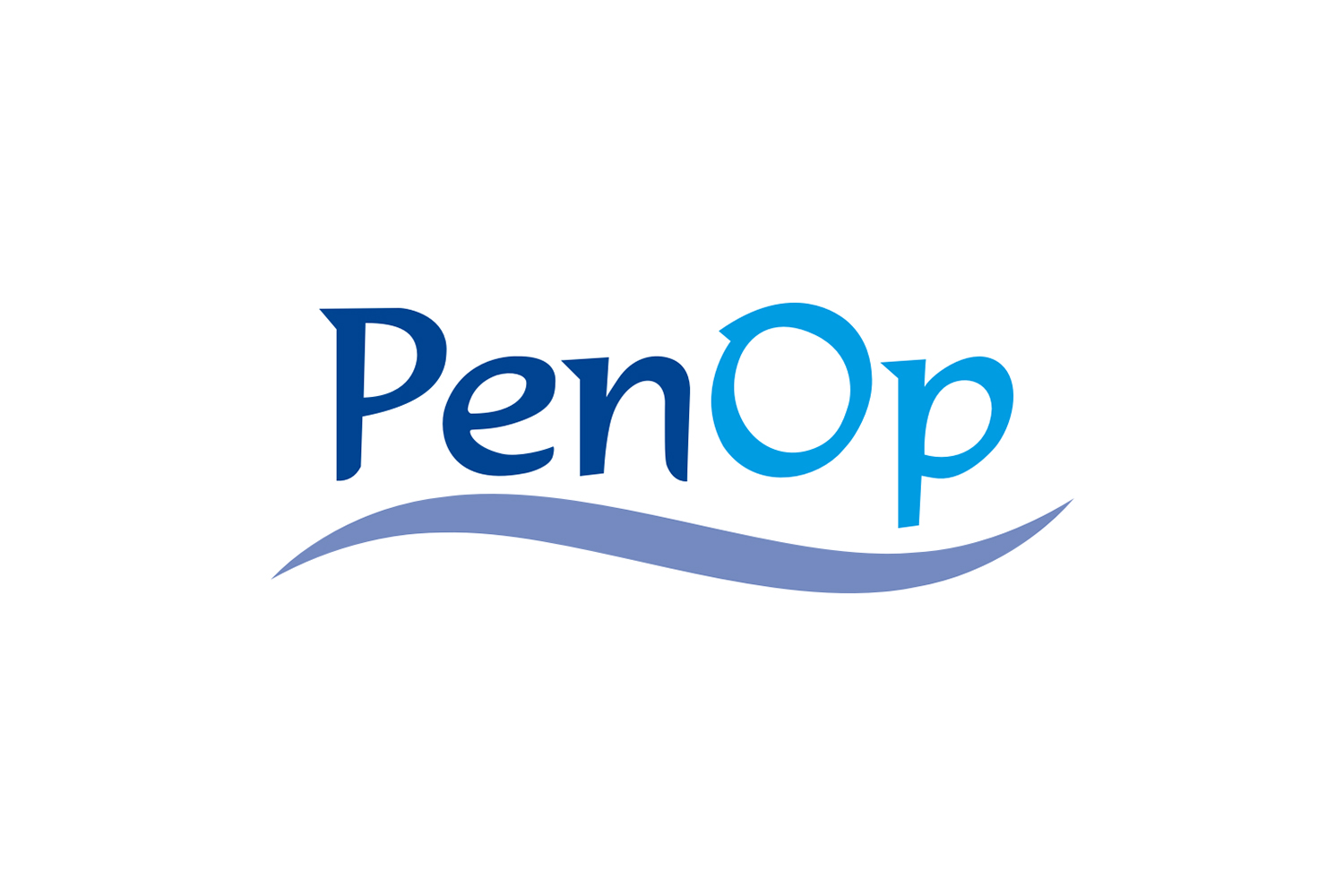
By Adedapo Adesanya
About N4.57 billion in pension funds have been recovered from defaulting employers between the first quarter of 2024 and the first quarter of 2025 by the National Pension Commission (PenCom).
This information was revealed by the chief executive of the Pension Fund Operators Association of Nigeria (PenOp), Mr Oguche Agudah, who said the amount comprised N2.12 billion in outstanding pension contributions and N2.45 billion in penalties.
According to him, these were recovered by an enforcement team of PenCom from 138 employers found to have defaulted in remitting workers’ pension funds.
“This is evidence that enforcement continues to safeguard workers’ retirement savings. The pattern also highlights what is next, which is a move from episodic crackdowns to durable prevention by tightening real-time remittance monitoring, escalating sanctions for chronic defaulters, and deepening employer education to reduce repeat offenses.
“The goal is not just big recovery headlines, it is fewer defaults, faster remittances, and a stronger, more predictable Contributory Pension Scheme.
“It is vital that workers know their rights. All employers engaging three or more staff are required by law to remit pensions on behalf of their employees.
“There are whistle blowing mechanisms for employees whose organisations do not comply,” he said, according to the News Agency of Nigeria (NAN) on Tuesday.
According to Mr Agudah, a breakdown of the enforcement exercise which led to these recoveries, revealed that the highest recovery was recorded in the first quarter of 2024, when N751.51 million in contributions and N1.44 billion in penalties were recouped.
He noted that although recoveries dipped in the middle of 2024, activities picked up in the fourth quarter and rebounded strongly in the first quarter of 2025, adding that during the period, the commission recovered N972.12 million in contributions and N381.88 million in penalties from 19 employers.
He explained that while the first quarter of 2025 was not the highest in overall recovery, it posted the strongest principal contribution of the five-quarter period, with an average recovery of N71 million per employer compared with about N63 million in the same quarter of 2024, noting that the trend showed it was tackling larger and more material cases, even as the number of defaulting employers declined.
General
Nigeria Imports 1,721 MW of Solar Panels in 12 Months
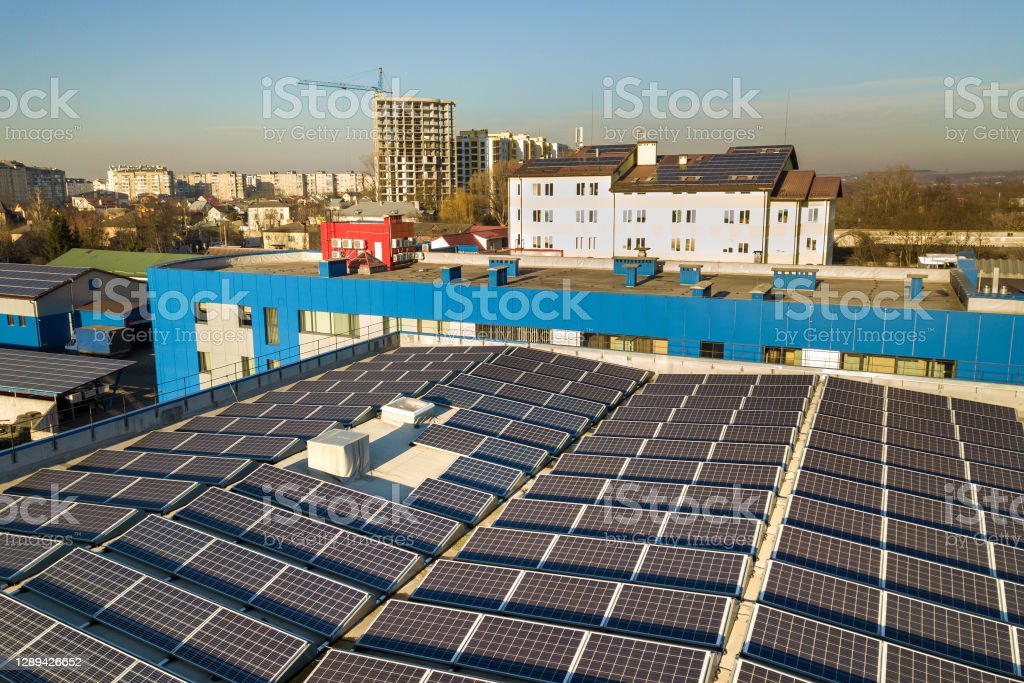
By Adedapo Adesanya
Between June 2024 and June 2025, Nigeria overtook Egypt to become the second-largest importer of solar panels in Africa, with 1,721 MW of solar panel imports, according to a new analysis of China’s solar panel exports data from energy think tank, Ember.
The firm said solar panel imports into Africa rose by 60 per cent in the 12 months to June 2025, reaching 15,032 MW from the 9,379 MW imported in the preceding 12 months. This shows the rise happening across Africa is at a scale to impact the electricity systems of many countries.
Recall the the federal government mulled the ban on solar panel imports to buoy local production, but that has not materialised so far.
The last time imports surged was in 2023, when South Africa’s solar imports picked up as the power crisis hit its peak. However, this time is different as much of the pick-up in the last 12 months happened outside of South Africa.
The data showed that Nigeria and 20 countries set a new record for the imports of solar panels in the 12 months to June 2025, while 25 countries imported at least 100 MW, up from 15 countries 12 months before.
While South Africa remained topped and Nigeria followed, Algeria ranked third with 1,199 MW.
Some countries recorded very high growth rates. Algeria’s imports rose 33-fold, Zambia eightfold, Botswana sevenfold, and Sudan sixfold, while Liberia, DRC, Benin, Angola and Ethiopia all more than tripled their imports.
The analysis finds that recent imports could make a major contribution to electricity generation in many African countries. If fully installed, imports in Sierra Leone in the last 12 months could generate electricity equivalent to 61 per cent of reported electricity generation in 2023, while in Chad the figure is 49 per cent. Liberia, Somalia, Eritrea, Togo and Benin could see generation rise by more than 10 per cent of reported 2023 generation. In total, 16 countries could see an increase of over 5 per cent.
The report describes how solar panel imports may actually reduce overall imports. The savings from avoiding diesel can repay the cost of a solar panel within six months in Nigeria, and even less in other countries. In nine of the top ten solar panel importers, the import value of refined petroleum eclipses the import value of solar panels by a factor of between 30 to 107.
Speaking on the data, Mr Muhammad Mustafa Amjad, Program Director at Renewables First, noted this surge is still in its early days and drawing a parallel of Pakistan’ s solar boom in the last two years, said it is important to have data.
“Bottom-up energy transitions fueled by cheap solar are no longer a choice – they’re our future. Tracking these additions is what makes the difference between a messy shift and an organised, accelerated one,” said “When you don’t track, you lose time and opportunities. Pakistan’s experience shows this clearly. Africa’s transition will happen regardless, but with timely data it can be more equitable, planned and inclusive.”
On his part, Mr Dave Jones, Chief Analyst at Ember, said, “The take-off of solar in Africa is a pivotal moment. This report is a call to action, urging stronger research, analysis and reporting on solar’s rise to ensure the world’s cheapest electricity source fulfils its vast potential to transform the African continent.”
General
International Syndicates Stealing Crude Oil in Africa—Ojulari

By Adedapo Adesanya
The chief executive of the Nigerian National Petroleum Company (NNPC) Limited, Mr Bashir Ojulari, has accused specialised international and continental gangs of stealing crude in Nigeria, as well as in Africa.
Mr Ojulari stated this at the opening of the Africa Chief of Defence Staff Conference held in Abuja, Nigeria’s capital city, on Monday.
He said crude oil theft has continental and international dimensions and should be tackled holistically through collaboration and synergy among various military formations across Africa.
“Crude theft and its attendant illegal activities are by no means a purely localised occurrence; rather, these operations involve specialised international syndicates that take advantage of gaps within the state, national and continental security architecture to conduct illegal activities,” he said.
The national oil company’s helmsman declared that crude theft and pipeline vandalism, especially within the oil-rich Niger Delta area of Nigeria, have become old occurrences because of the efforts of security agencies.
“Security forms a key pillar of the energy business and therefore plays a very important and strategic role in achieving national, regional and continental energy security goals,” he said.
Mr Ojulari noted that the little efforts that has been carried out have been nearing fruits.
“We have seen the benefit of the collaboration within the energy space, with significant improvement in our operating environment.
“The dilapidating impact of crude theft, low pipeline availability and attacks are issues that have become stories of the past for us.
“These have come from the immense and intentional efforts of our government agencies across the nation and, in particular, within the Niger Delta.
“Today, I can proudly report to you all that our pipelines and terminals’ receipt of crude oil, which was somewhere as low as 20 per cent to 30 per cent, we are attaining close to 100 per cent due to the support of the security forces and the intelligence agencies,” he added.
Mr Ojulari said continental forums such as the gathering should be encouraged to strengthen strategic activities within the continent.
-

 Feature/OPED6 years ago
Feature/OPED6 years agoDavos was Different this year
-
Travel/Tourism9 years ago
Lagos Seals Western Lodge Hotel In Ikorodu
-

 Showbiz3 years ago
Showbiz3 years agoEstranged Lover Releases Videos of Empress Njamah Bathing
-

 Banking7 years ago
Banking7 years agoSort Codes of GTBank Branches in Nigeria
-

 Economy2 years ago
Economy2 years agoSubsidy Removal: CNG at N130 Per Litre Cheaper Than Petrol—IPMAN
-

 Banking2 years ago
Banking2 years agoFirst Bank Announces Planned Downtime
-

 Sports2 years ago
Sports2 years agoHighest Paid Nigerian Footballer – How Much Do Nigerian Footballers Earn
-

 Technology5 years ago
Technology5 years agoHow To Link Your MTN, Airtel, Glo, 9mobile Lines to NIN






